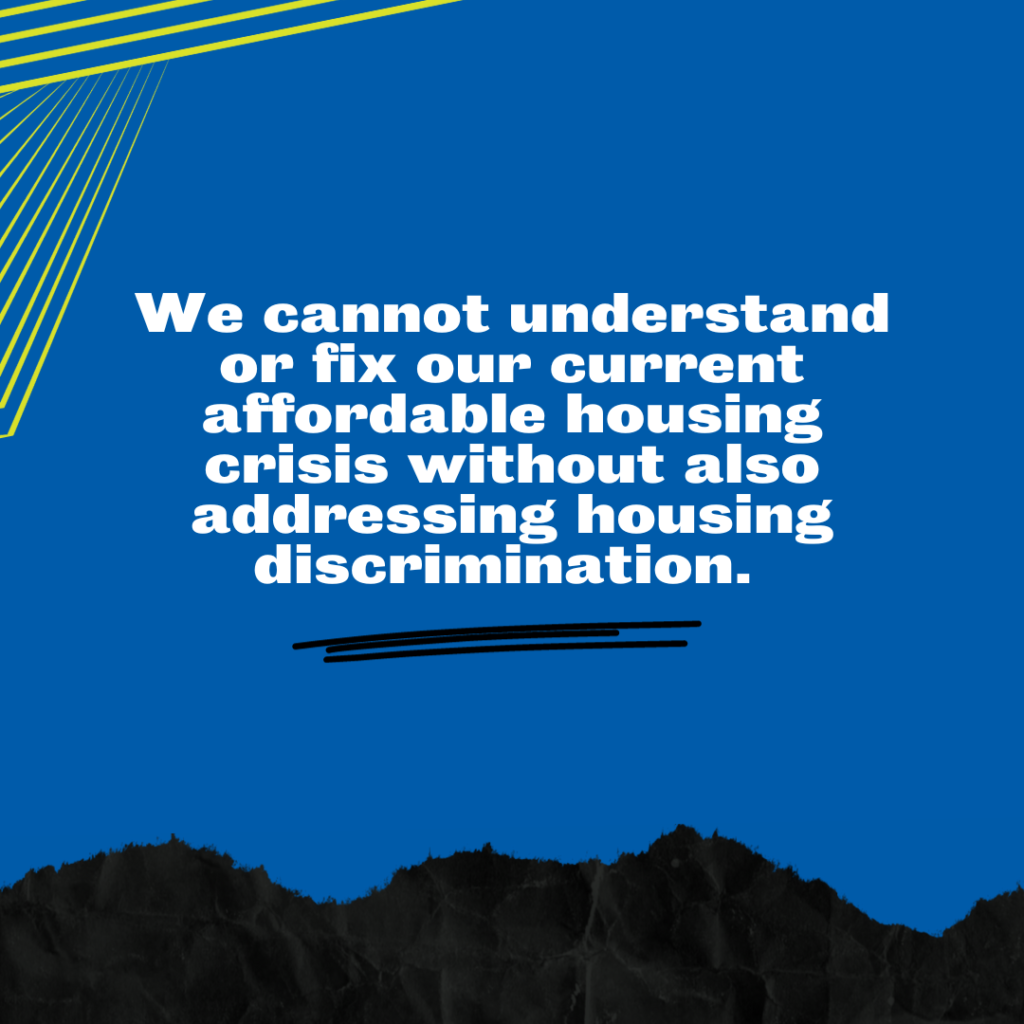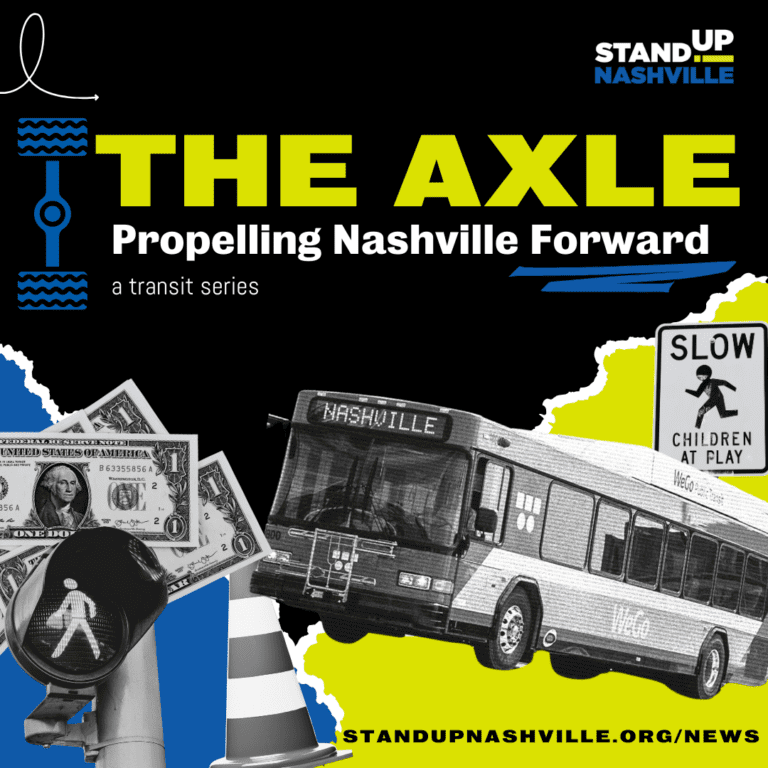Spoiler alert: Housing injustice is deeply rooted in racism and pervasive systems of oppression.
Chances are the spoiler alert isn’t new to you. You likely recognize many issues, problems, challenges, and flat out injustices are due to a longstanding history of racism and its generations of harm. It is evident across many aspects of life including education, healthcare, employment, finance, and transportation. Sadly, it is no different when we examine the root of Nashville’s housing crisis.
How did we get here? Most forms of racism and discrimination were enforced through legislative policy and government agencies with the purpose to exclude or harm communities of color. The harm continues today through the issues that elected officials, government agencies, and even the Supreme Court of the United States refuse to protect through respective policy and judicial rulings. As a reminder, SCOTUS overturned affirmative action in higher education nearly three months ago. Last year, congress failed to pass a combined bill for the John Lewis Voting Rights Act of 2021 and Freedom to Vote Act, leaving additional federal voting protections flying in the wind.
Notable times and terms:
1930s
- Redlining – The practice of evaluating risks and refusing to provide mortgages, insurance loans and other services for homes within urban neighborhoods based on race and ethnicity. This specifically made it difficult for Black people to build generational wealth through homeownership and businesses.
1950s – 1960s
- Blockbusting – The deliberate practice of introducing Black homeowners into previously all white neighborhoods to induce white flight, only to lead to homes being sold at below market values and purchased by Black families at inflated prices. This practice negatively impacted the housing market and neighborhood values.
- White flight – The large-scale exit of white people moving from urban areas, particularly those with significant minority populations, and into suburban areas.
- Urban renewal – A term and program title referring to the disruption and razing of inner city areas in favor of other development. In Nashville, federal investment displaced Black families, whose homes and neighborhoods were demolished for urban renewal projects, like the construction of the James Robertson Parkway, I-40, and Music Row.
1990s
- Gentrification – The process of urban areas being transformed in favor of higher priced development including housing and businesses. This act uproots existing residents and displaces them from their neighbors and long lived and loved communities.
- State sponsored gentrification – When the federal government and the local housing authority demolish public housing units – disproportionately occupied by people of color, to build new, mixed-income developments, often with fewer units. In 2021, the state and Metro Nashville agreed to subsidize corporate giant Oracle’s dream to build a campus along the city’s east bank. This negatively impacted RiverChase Apartments residents, who were displaced when a corporate developer from Texas bought and razed the property.
- Predatory loan – A loan that typically carries a higher interest rate, making it riskier and more expensive than a conventional loan. During the late 1990s and early 2000s, lenders intentionally targeted Black families with limited access to credit, resulting in high rates of foreclosure during the 2008 financial crisis.
These times and terms represent some of the policy-rooted, discriminatory practices that have residual present-day impact. Just because they started decades ago, doesn’t mean they have stopped. According to a 2018 article from the Nashville Scene, “We are still living in the society that those old redlining maps helped shape. In 2017, economists at the Federal Reserve Bank of Chicago released an analysis of the 1930s maps showing that lower-graded neighborhoods experienced an increase in racial segregation that began to decline as late as 1970. In lower-graded areas, they also found evidence of a decline in home ownership, house values and credit scores that ‘persists today.’”
While the detriment and devastation of decades upon decades of harm are persistent, we refuse to accept the status quo reinforced by bad deals and corporate greed. We believe that everyone should be able to have safe, stable, and affordable housing in Nashville. There’s no doubt that it can happen when we align to achieve it.







